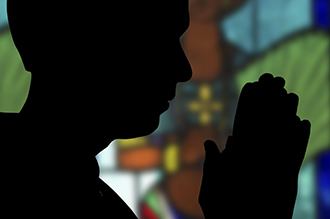 Students at Dartmouth are challenging two closely related, disturbing trends in higher education—the growth of bureaucracy and censorship. In a petition to the Dartmouth administration, five student government leaders and 1,200 signees expressed strong discontent with the ever-increasing number of non-faculty staff employed by the college. The number of non-faculty administrators has risen to 1,000 from 1999 to 2004 and then, despite faculty lay-offs, to 3,497 by 2015. This monumental staff increase has contributed to making the minimum cost $70,000 for a year at Dartmouth.
Students at Dartmouth are challenging two closely related, disturbing trends in higher education—the growth of bureaucracy and censorship. In a petition to the Dartmouth administration, five student government leaders and 1,200 signees expressed strong discontent with the ever-increasing number of non-faculty staff employed by the college. The number of non-faculty administrators has risen to 1,000 from 1999 to 2004 and then, despite faculty lay-offs, to 3,497 by 2015. This monumental staff increase has contributed to making the minimum cost $70,000 for a year at Dartmouth.
Worse yet, the bureaucratization of the college environment inhibits a school’s ability to actually educate its students. As reported by FIRE, the petition addresses student concerns that the Dartmouth education is policing them rather than teaching them.
Instead of making a sincere and concerted attempt to resolve the [cost] issues mentioned above, the Dartmouth administration has spent its time policing student life. Buoyed by the idea that the College should support exclusionary “safe spaces” that act as a barrier against uncomfortable ideas, administrators have assumed the role of paternalistic babysitters. By effectively taking sides in sensitive debates and privileging the perspectives of certain students over others, administrators have crossed the line between maintaining a learning environment that is open to all and forcing their own personal views onto the entire campus. In doing so, they have undermined the value of civility, harmed the free exchange of ideas, and performed a disservice to those students who see their time in college as preparation for success in the real world.
Controlling students’ lives by suppressing their ability to think goes directly against the traditional role of a college as a place where students can exchange ideas and challenge themselves with new perspectives. The petition goes on to state that by suppressing freedom of speech on campus is inconsistent with Dartmouth’s own promised commitment to free speech.
Examples of bias incidents, according to Dartmouth’s Office of Pluralism and Leadership, include “telling jokes” and “stereotyping.” This policy is inconsistent with Dartmouth’s claim to be an institution that “prizes and defends the right of free speech.” If every joke or provocative remark about politics, religion, or culture is potentially subject to a formal investigation, Dartmouth students are not truly free to speak their minds.
To remedy Dartmouth’s problem, the petition proposes a simple, but effective solution:
We therefore envision a College that has stripped away unnecessary deans, administrators, and support offices. We envision a College where students are granted the liberty to lead their lives as they please and enjoy a true freedom to speak their minds. We envision a College that has recommitted itself to its roots in rigorous and stimulating undergraduate education.



